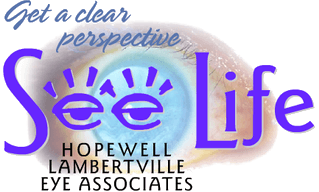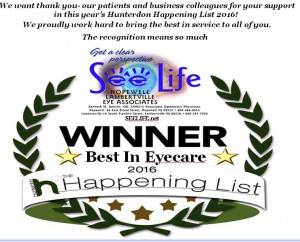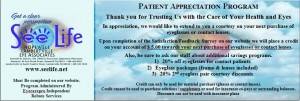Keep Your Eyes Safe in Cold Weather
Winter is a magical season when people get a lot of relief from warm summer and feel calm and relaxed without sweating. But still, this wonderful season brings many challenges, especially health-related problems that really make trouble for a person. And that’s why it’s important to keep yourself healthy and take care of your body, especially some sensitive body parts such as your eyes, because the winter season can really affect your eyes. That’s why it is important to protect your eyes, and in this blog, we will provide some important tips to keep your eyes safe in cold weather.
The winter weather has arrived, and it’s time to protect your eyes, which means you are spending more time indoors. Here are some of the ways that winter can affect your eye health, and some tips for prevention.
What can happen with exposure?
- Tear Evaporation: In cold, dry, or windy conditions, tears evaporate faster. This can lead to excessive tear production, causing watery eyes and difficulty focusing. Tears protect the ocular surface – with the loss of tear protection can lead to Keratitis and UV damage.
- Corneal Frostbite – Keratitis: Extended exposure to extremely cold temperatures without proper eye protection can lead to corneal freezing. The cornea’s blood vessels may constrict and freeze, causing pain, redness, irritation, and double or blurry vision. This is a rare occurrence. Snow blindness, also known as photokeratitis, is a painful eye condition that occurs when the cornea is exposed to too much ultraviolet (UV) light. It’s similar to a sunburn of the cornea and conjunctiva.
- UV Damage: Winter doesn’t mean a break from harmful UV rays. Reflections off snow and ice can increase UV exposure and potentially cause retinal damage and eye sunburn.
Winter sun
- Sunglasses aren’t just for summer. Snow and ice are reflective, so the sun’s rays can reach your eyes from below as well as above. The low sun in winter can be dazzling, so wear sunglasses on sunny winter days, particularly when driving.
- If you wear glasses, ask about having anti-reflection coating on the lenses to reduce the effects of sun glare while driving.
Dry eyes
Central heating can make already dry eyes feel worse. There are some simple steps you can take to feel more comfortable:
- Lower the temperature in rooms when possible.
- Open windows, even for a few minutes.
- Use a humidifier, or have a bowl of water near the radiator to help humidify the air.
- You can get moisturizing eye drops or ointments over the counter from your optometrist or pharmacist if you need to.
10 Effective Tips To Protect Your Eyes During Winter
1. Use Protective Eyewear Outdoors
Cold winds and UV rays can irritate your eyes or cause damage over time.
- Wear sunglasses: Choose UV-blocking sunglasses, especially during snowy conditions, to prevent sun damage.
- Goggles: If you’re skiing or snowboarding, goggles protect against wind and snow particles.
- Choose wraparound styles: These provide added protection from harsh winds.
2. Stay Hydrated
Cold weather often causes dehydration, which can lead to dry eyes.
- Drink plenty of water: Aim for at least 8 glasses a day to maintain hydration.
- Consume hydrating foods: Include fruits like oranges and cucumbers in your diet.
- Limit caffeine: Coffee and tea can dehydrate your body and exacerbate dry eye symptoms.
3. Use a Humidifier Indoors
Heating systems in winter dry out the air, affecting your eyes.
- Add moisture to the air: Setup a humidifier in your home or office to keep the air humid.
- Place it in common areas: Keep it in the bedroom or living room where you spend the most time.
- Monitor humidity levels: Aim for a 40–60% humidity level for optimal comfort.
4. Avoid Rubbing Your Eyes
Cold weather can make your eyes itchy, but rubbing them can worsen the irritation..
- Wash hands frequently: This prevents the transfer of germs to your eyes.
- Use eye drops: Apply lubricating viscous eyed drops (non preserved) to soothe itchiness and dryness
- Practice restraint: Gently blot your eyes with a clean tissue if needed instead of rubbing.
5. Protect Your Eyes From Indoor Heat Sources
Sitting nearby heaters or fireplaces can easily dry out your eyes.
- Maintain distance: Sit at least a few feet away from heat sources.
- Redirect vents: Avoid direct air from heaters or blowers toward your face.
- Blink often: Make a conscious effort to blink regularly to retain moisture.
6. Limit Screen Time
In winter, people spend more time indoors, increasing their exposure to digital screens.
- Follow the 20-20-20 rule: Every time when you get time take a break and for 20 minutes, look at an object 20 feet away for 20 seconds.
- Adjust screen settings: Reduce brightness and increase font size for comfort.
- Use blue light filters: Protect your eyes from strain by installing a filter on your devices.
7. Be Mindful of Contact Lens Usage
Contact lenses can exacerbate dryness during winter..
- Switch to glasses occasionally: Give your eyes a break from lenses.
- Use lens-friendly drops: Apply lubricating drops designed for contact lenses.
- Choose daily disposables: These reduce the risk of irritation and infection.
8. Don’t Skip Eye Exams
Winter eye discomfort might indicate underlying issues.
- Schedule regular checkups: Consult an eye doctor to ensure your eyes are healthy.
- Address problems early: Treat symptoms like redness or excessive dryness promptly.
- Ask for professional advice: Your doctor can recommend specialized treatments or products.
9. Eat a Nutrient-Rich Diet
A balanced diet supports overall eye health.
- Include omega-3s: Foods like salmon and walnuts can reduce dryness.
- Add vitamin A: Carrots, sweet potatoes, and spinach are really good for eye health.
- Snack on citrus fruits: Vitamin C helps protect against UV damage and dryness.
10. Be Prepared for Snow Glare
Snow directly reflects sunlight, which can harm your eyesight.
- Invest in polarized sunglasses: These reduce glare and protect against harmful UV rays.
- Wear a brimmed hat: It shields your eyes from direct sunlight.
- Avoid direct exposure: Limit time outdoors during peak sunlight hours.
For more information or if you have concerns call
Hopewell Eye Associates – 84 East Broad Street, Hopewell, NJ 08525 609-466-0055
Lambertville Eye Associates – 16 South Franklin Street, Lambertville, NJ 08530 609-397-7020
www.seelife.net
RE: https://spectraeyemu.com/blog/winter-eye-safety-tips.php
REhttps://lookafteryoureyes.org/eye-care/winter-eye-health/winter-eye-health-infographic/




